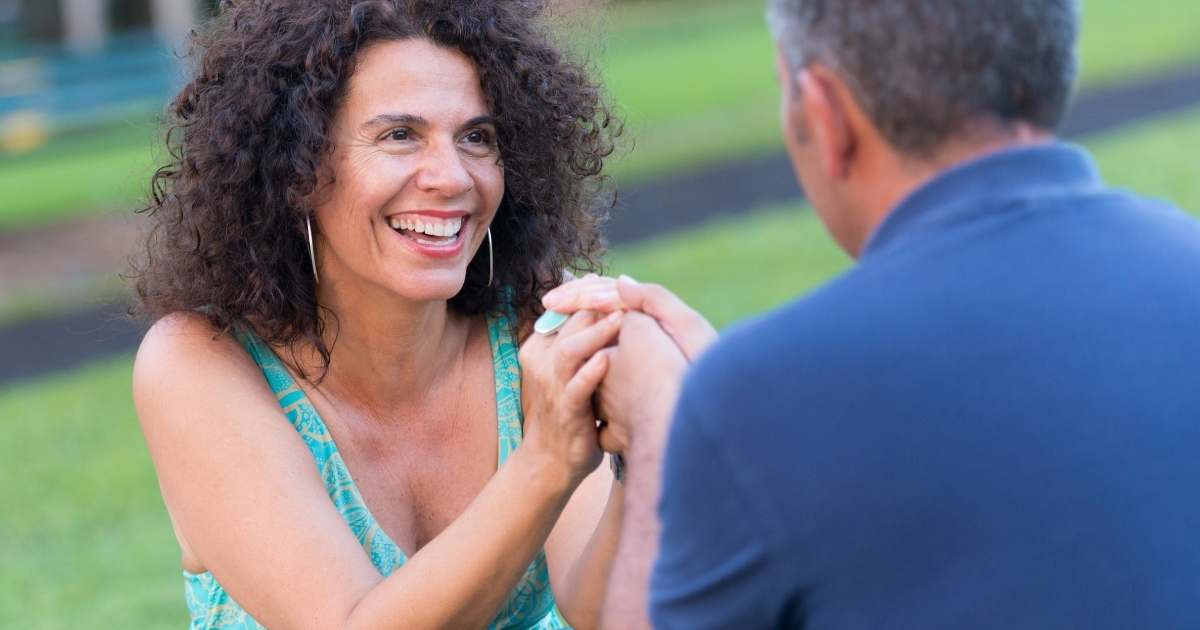
How To Improve Yourself After A Breakup
Breakups, at any age, are a challenge. However, they also present a unique opportunity for self-reflection and growth. For individuals in their 50s, 60s, and 70s, healing after a breakup can become a time to rediscover passions, reevaluate priorities, and rebuild a fulfilling life.
Here’s how you can focus on self-improvement and personal growth during this period.
1. Prioritize Emotional Healing
After a breakup, it’s important to acknowledge your emotions and give yourself space to process them. This is not about rushing to “move on” but rather about honoring how you feel and taking intentional steps toward healing.
- Practice Mindfulness: Start with simple breathing exercises or guided meditations. Apps like Calm or Insight Timer can help you focus on the present moment, reducing overwhelming feelings of sadness or stress.
- Journal Regularly: Writing can be incredibly therapeutic. Use a journal to unpack your thoughts and emotions. Reflect on your relationship, what you’ve learned, and what you’re ready to leave behind.
- Seek Support: Whether through trusted friends, family members, or a professional counselor, talking openly about your feelings is essential. Sometimes, healing requires leaning on others.
2. Reassess Your Goals and Priorities
Breakups can leave anyone feeling untethered, but they’re also prime opportunities to reassess your life’s direction. This period of transition allows you to set new goals that reflect your current values.
Use these reflective questions to gain clarity:
- What activities or roles brought you the most joy and fulfillment in the past?
- Are there hobbies or interests you’ve neglected?
- How can you prioritize your mental and physical health moving forward?
You might decide to reengage with creative pursuits, consider downscaling your life for simplicity, or invest energy into new friendships. Draw a roadmap for where you’d like to see yourself in a year or two.
3. Build a Routine That Nurtures You
Structure can be comforting and incredibly helpful when navigating emotional turbulence. Creating a daily or weekly routine ensures you stay engaged with life rather than drifting into isolation. Here are some helpful ideas:
- Morning Rituals
Set the tone for your day with a positive activity. Try light stretching, reading something uplifting, or having your favorite tea or coffee outside.
- Exercise Regularly
Fitness isn’t just about staying in shape; it plays a major role in mental health too. Gentle yoga, water aerobics, or even walking clubs designed for older adults can keep you moving.
- Block Time for Personal Passions
If you’ve always wanted to paint, learn an instrument, or write a memoir, start dedicating time to it weekly. Committing to these activities enriches your routine.
- Unplug Evenings
Turn off the TV or put aside your devices at least an hour before bed. Try quiet activities like knitting, reading, or engaging in puzzles to unwind.
4. Invest in Your Physical Health
Your body and mind are deeply connected. Taking good care of your physical health enhances your sense of well-being and gives you energy to pursue new goals.
Schedule a health check-up to assess any areas that need attention. Then, create a health plan that may include:
- Eating more whole foods, focusing on vegetables, fruits, and lean proteins.
- Drinking more water throughout the day—proper hydration improves mood and energy.
- Staying active in a way that fits your fitness level, such as tai chi or hiking.
When you take intentional steps to strengthen your physical health, your emotional resilience often follows.
Rediscover Your Identity
Long-term relationships can sometimes cause us to center large parts of our identity around our partner. A breakup allows for self-rediscovery—an essential component of personal growth.
Think about who you’ve been in different stages of your life. Were you artistic in your youth? Did you light up at the idea of travel? Have you lost sight of past passions or curiosities? Revisit the things that made you feel alive and choose a few to actively pursue.
Giving yourself permission to explore is key. You’re not locked into anyone else’s expectations, and this period of liberation can feel deeply gratifying if you open yourself to it.
Expand Your Social Circle
One of the best ways to heal from a breakup is to surround yourself with supportive relationships. Beyond friends and family, consider broadening your social network. Making new connections not only counters isolation but also introduces you to fresh perspectives and experiences.
Ideas for building new connections:
- Join Community Groups:
Libraries, senior centers, or local nonprofits often host interest-based groups such as book clubs, walking meetups, or craft workshops.
- Volunteer:
Giving back is rewarding and often leads to meaningful relationships with like-minded people. Whether it’s working with children, animals, or environmental causes, find a volunteer opportunity that speaks to you.
- Explore Online Spaces:
Look for forums or social media groups designed for individuals later in life. Many dating apps and platforms have built-in community features specifically for seniors.

Learn Something New
Tap into your curiosity by picking up a new skill or expanding your knowledge. This enriches both your life experience and your sense of self-confidence post-breakup.
Here’s how to get started:
- Take an online course on a topic that excites you, from art history to gardening. Many universities offer free or affordable options tailored for adult learners.
- Try a hands-on class, such as cooking, pottery, or woodworking.
- Explore technology workshops aimed at older adults to level up your digital skills, opening doors to easier communication and new friendships.
Learning keeps your mind sharp and gives you something tangible to focus on.
Practice Gratitude and Perspective
Healing after a breakup often comes down to how you frame the experience. Practicing gratitude can shift your perspective from what you’ve lost to what you’re gaining. It’s not about minimizing your pain but recognizing the positive elements of your life and future.
To foster gratitude:
- Write down three things you’re thankful for each day, even small wins like a sunny morning or a kind interaction.
- Reflect on what the relationship taught you—about yourself, your needs, and your resilience. Every experience carries lessons that prepare us for what’s next.
- Celebrate progress. Healing doesn’t happen overnight, and acknowledging even small steps forward helps reinforce your growth.
Remember, your breakup doesn’t define your worth or dictate what comes next.
Embrace the Possibilities Ahead
This chapter in your life holds opportunities for personal growth and joy, even if it doesn’t feel like it right away. Healing after a breakup is a process, but with time, effort, and self-compassion, you can emerge stronger and more in tune with yourself.
Rediscover who you are, focus on both physical and emotional well-being, and surround yourself with people who uplift you. Whether you’re exploring long-held dreams, nurturing new friendships, or simply learning to enjoy your own company, the possibilities are endless. It’s your time now—embrace it.











